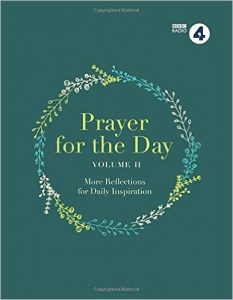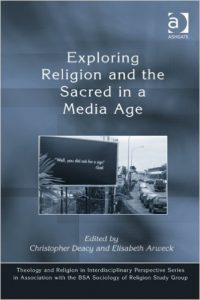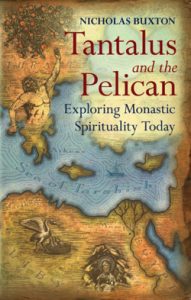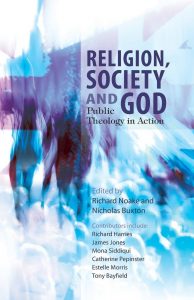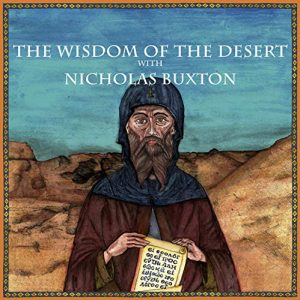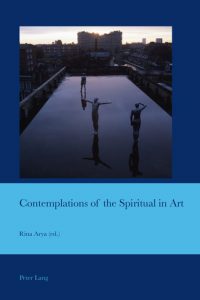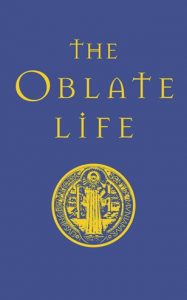Christian Writings
I did not grow up going to church, and was an avowed atheist during my rebellious teenage years. That said, I was always interested in the ‘big questions’, and found myself strongly drawn towards the teachings of Buddhism. Through deeper engagement with the religious traditions of India during my late twenties, I unexpectedly found myself thinking about the Christian tradition in a new light. Having made a firm commitment to follow the spiritual path wherever it might lead, I started going to church in my early thirties. Nearly ten years later, I was ordained in Ripon Cathedral.
For about ten years between the ages of 27-37, I seriously considered whether I might have a vocation to the religious life. During this time, I visited and stayed in various communities, including a Buddhist monastery in New Zealand and an Ashram in India. I became an Oblate of the Anglican Benedictine community of Elmore Abbey in 1998, and in 2004 spent six weeks at Worth Abbey for the making of the BBC television documentary The Monastery.
Ever since I got interested in philosophy and religion I also wanted to be a writer. As a graduate student I started publishing the occasional article, and in 2009 published my first book, Tantalus and the Pelican. This was followed by The Wilderness Within in 2014.
Future projects include a revised and expanded second edition of Tantalus, and a book about following the path of Christ, provisionally titled A Tale of Two Gardens.

Tantalus and the Pelican
Exploring Monastic Spirituality Today
The story begins with the origins of monasticism in the deserts of Egypt during the 4th century, and the writings of Evagrius of Pontus, principal systematiser of early monastic theology. At the same time, the author’s own encounters with various forms of monasticism, both Buddhist and Christian, are woven into the narrative.
Subsequent chapters look at St Benedict, and the significant elements of his monastic rule, reflecting on the counter-cultural message of monasticism in contemporary society – not to mention the curious phenomenon of a monastic reality TV show…
Finally, the book focuses on the more interior aspects of spirituality – such as prayer and silence – drawing in particular on the experience of staying with the Carthusians, an order of hermits closely modelled on the desert fathers.
“As a reader might imagine, this book can be compelling. Buxton’s trajectory is dramatic, and he writes about it with clarity and candour. He’s well-read and well-versed in the early monastic heavy hitters, quoting the abbas, Evagrius, and Benedict extensively and easily.” American Benedictine Review
“Sensitive and perceptive (…) It is also very readable (…) Stretching out to what is of ultimate value is tantalising; a book about it must inevitably be incomplete, leaving us wanting more. Good books do that.” Jonathan Ewer, Church Times
“I can warmly commend the book as ‘spiritual reading’ in itself, as it is thoughtful, interesting, researched, well-written, original and accessible.” Sister Avis Mary SLG, Fairacres Chronicle
“One of the things that gives Tantalus and the Pelican its interest is its account of a spiritual development so characteristic of our times (…) This is a carefully crafted and intelligent book, weaving together a number of themes.” Gillian Leslie, The Tablet
The Wilderness Within
Meditation and Modern Life
Meditation is not just a form of ‘spiritual technology’ to help us achieve our personal goals, but simply sitting quietly before God. It is not a means to an end, but an end in itself. Though it can be learnt in a few minutes, it is likely to take more than a lifetime to master.
Drawing extensively on the teachings of Jesus and other biblical narratives, The Wilderness Within explores what meditation really is and what it actually involves. It encourages us to explore with honesty our motives for practising it, and explains the need to create a positive and balanced spiritual discipline in our lives.
Meditation is about taking a step back from ourselves, and putting things into perspective. It is about learning to see things as they are, rather than as we think they ought to be. Ultimately, it is about becoming more fully who and what we really are.
“This is an exceptionally well written book aimed at those interested in exploring Christian meditation.” Kirsty Anderson, The Tablet
“This is an accessible and thoughtful book for those looking to discover a new dimension in their spiritual life.” Rachel Poolman, St Cuthbert’s Centre
“Written in an easy to digest style, Buxton combines pithy reflections on contemporary issues with imaginative biblical reflection whilst drawing on the ancient mystics.” David Ford, Good Book Reviews
“This is an absolute gem of a book… not so much a how-to-meditate as a why-to-meditate book. In this regard it is one of the best I have come across. It is quite simply superb!” Revd Canon Christopher Collingwood, York Minster
A Tale of Two Gardens
Following the Way of Christ
Lorem ipsum dolor sit amet, consectetur adipiscing elit, sed do eiusmod tempor incididunt ut labore et dolore magna aliqua. Ut enim ad minim veniam, quis nostrud exercitation ullamco laboris nisi ut aliquip ex ea commodo consequat. Duis aute irure dolor in reprehenderit in voluptate velit esse cillum dolore eu fugiat nulla pariatur.

Lorem ipsum dolor sit amet, consectetur adipiscing elit, sed do eiusmod tempor incididunt ut labore et dolore magna aliqua. Ut enim ad minim veniam, quis nostrud exercitation ullamco laboris nisi ut aliquip ex ea commodo consequat. Duis aute irure dolor in reprehenderit in voluptate velit esse cillum dolore eu fugiat nulla pariatur. Excepteur sint occaecat cupidatat non proident, sunt in culpa qui officia deserunt mollit anim id est laborum.
Lorem ipsum dolor sit amet, consectetur adipiscing elit, sed do eiusmod tempor incididunt ut labore et dolore magna aliqua. Ut enim ad minim veniam, quis nostrud exercitation ullamco laboris nisi ut aliquip ex ea commodo consequat. Duis aute irure dolor in reprehenderit in voluptate velit esse cillum dolore eu fugiat nulla pariatur. Excepteur sint occaecat cupidatat non proident, sunt in culpa qui officia deserunt mollit anim id est laborum.
Lorem ipsum dolor sit amet, consectetur adipiscing elit, sed do eiusmod tempor incididunt ut labore et dolore magna aliqua. Ut enim ad minim veniam, quis nostrud exercitation ullamco laboris nisi ut aliquip ex ea commodo consequat.



